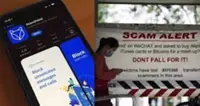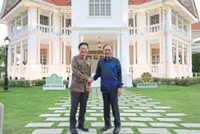A new treatment using white blood cells from healthy donors that are modified to more effectively recognise and kill cancer cells will be trialled in Singapore from April.
The two-year trial at the National University Cancer Institute, Singapore (NCIS) will test the therapy on nine to 18 patients who have lymphoma, multiple myeloma, colorectal cancer, lung cancer, liver cancer or ovarian cancer – six of the most common types of cancers in Singapore.





